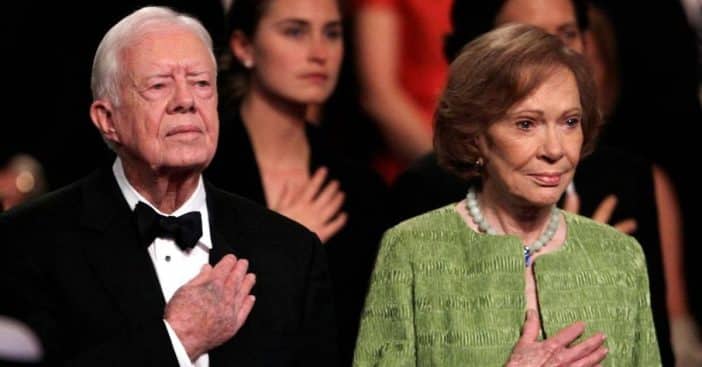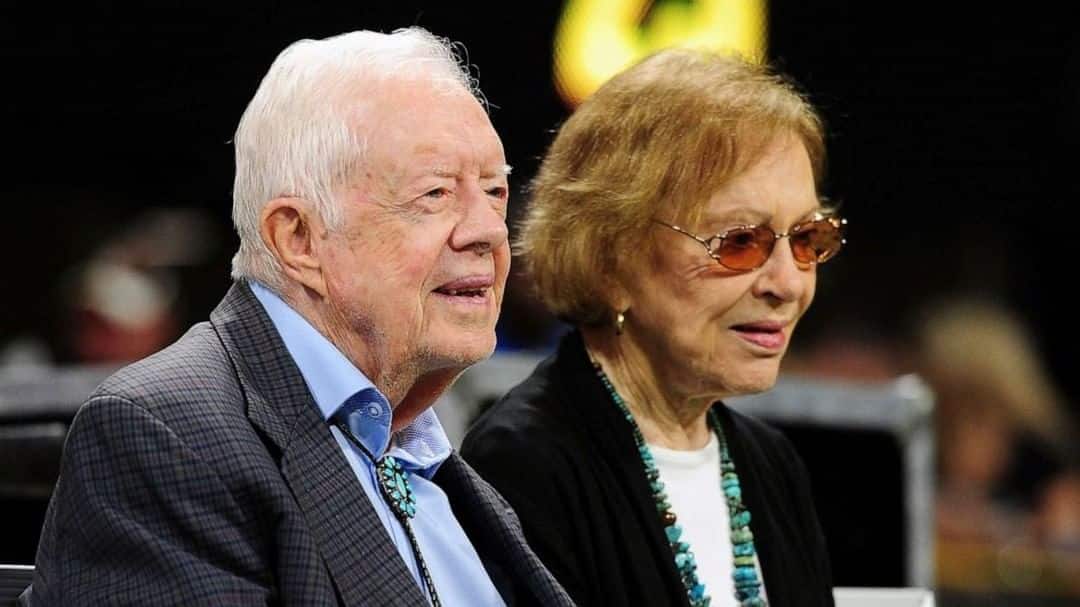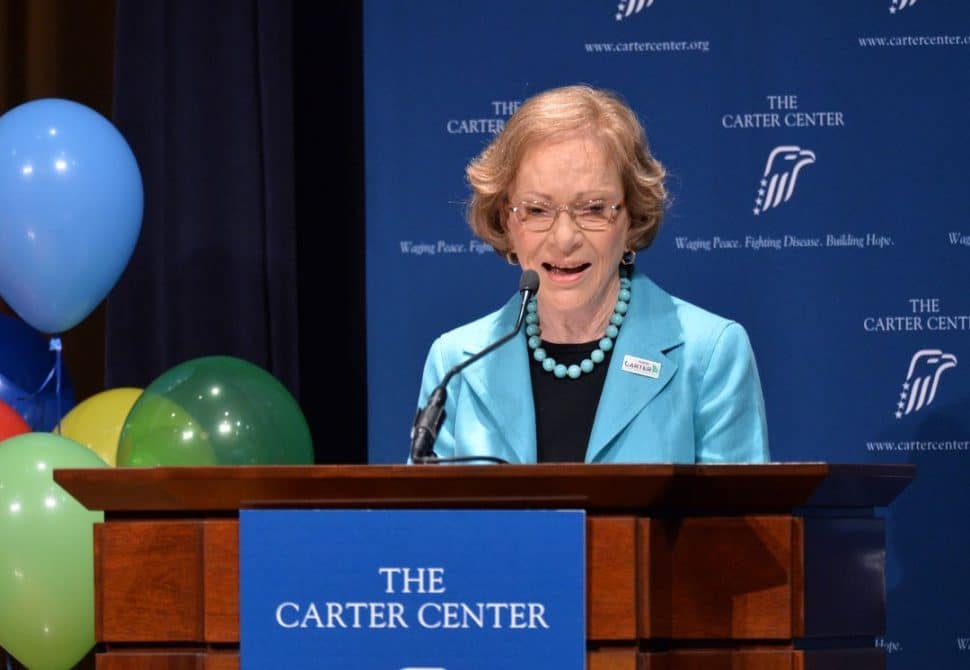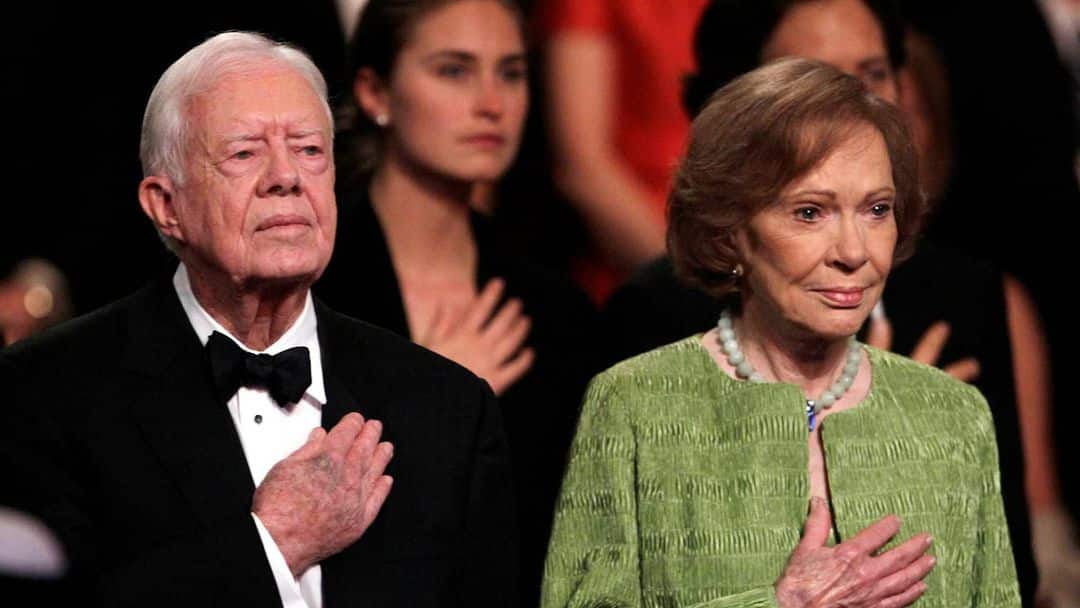
Rosalynn Carter, first lady to the 39th President of the United States of America, who is renowned for her remarkable contributions to mental health advocacy, has just been diagnosed with dementia while her husband, President Jimmy Carter, is also receiving hospice care.
According to a statement made by the Carter Center, the family confirmed the diagnosis. “The Carter family is sharing that former First Lady Rosalynn Carter has dementia,” the statement read. “She continues to live happily at home with her husband, enjoying spring in Plains and visits with loved ones.”
The Carter Center says they hope that sharing the news will help lots of people

The Carter Center noted in the statement that the reason for making Mrs. Carter’s diagnosis public is to help combat the general stigma associated with mental health. The organization emphasized that sharing her health details will reduce societal misconceptions and biases.
RELATED: Jimmy And Rosalynn Carter Break Their Own Record As Longest-Married Presidential Couple
“We recognize, as she did more than half a century ago, that stigma is often a barrier that keeps individuals and their families from seeking and getting much-needed support,” the announcement read. “We hope sharing our family’s news will increase important conversations at kitchen tables and in doctor’s offices around the country.”
Rosalynn Carter has been a dedicated mental health champion

Mrs. Carter has been a longstanding champion of mental health care, working diligently to combat the social stigma surrounding mental illness. Serving as the First Lady, she held the honorary position of chairperson for the President’s Commission on Mental Health, where she played a crucial role in advocating for improved mental health services. Her unwavering dedication and influential contributions were pivotal in the passage of a significant bill that sought to increase funding for mental health services specifically targeting disadvantaged communities.
Following their departure from the White House after her husband’s reelection loss to Ronald Reagan, the 95-year-old continued to make a meaningful impact by engaging in humanitarian endeavors through the Carter Center, which was established in 1982. Also, Mrs. Carter took the initiative to establish the Rosalynn Carter Institute for Caregivers, an institute that serves as a valuable resource, providing support, conducting research, and offering funding opportunities to individuals across America who are responsible for caring for their elderly family members and loved ones.
Tributes pour in as news of Rosalynn Carter’s diagnosis makes the rounds

The news of Rosalynn Carter’s dementia diagnosis prompted an outpouring of heartfelt tributes for the esteemed former first lady. The Governor of Georgia, Brian Kemp, was full of admiration for the 95-year-old and her family as he penned his heartfelt message on Twitter. “Marty, the girls, and I ask all Georgians to join us in praying for the health and comfort of former First Lady Rosalynn Carter. Throughout her many years of service, Mrs. Carter has been a champion for mental healthcare and worked to promote the well-being of those affected by these issues, along with their caregivers,” he wrote. “As she and her family face this challenge, we know she will do so with the same strength and vigor she has shown in other areas of her life. Our thoughts are with the entire Carter family during this time. Rosalynn Carter is a champion for mental health care.”
“Thinking of and praying for First Lady Rosalynn Carter and for President Carter during these tough and tender times,” Georgia Senator Raphael Warnock wrote.”So grateful for their continuing example of service and sacrifice.”
The National Hospice and Palliative Care Organization also took to its Twitter account to appreciate the openness of the Carter family. “Thank you to the Carter family for courageously sharing details of their health journeys publicly,” the statement read. “In doing so, the Carters are helping to light the way for others to think about their own advance care planning needs.”
